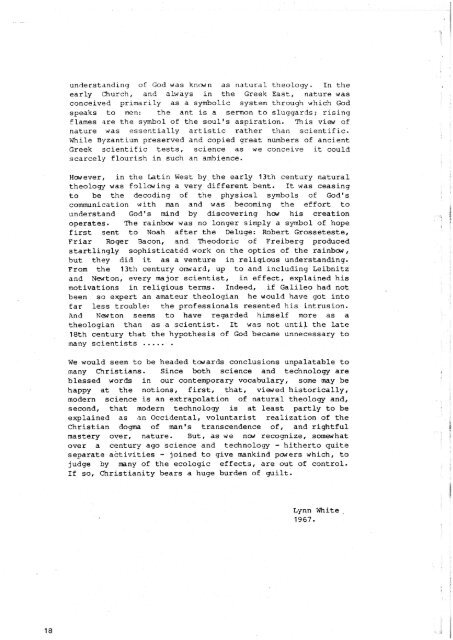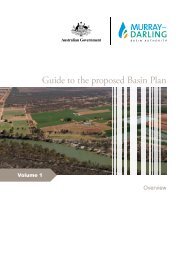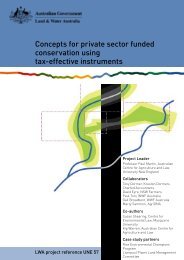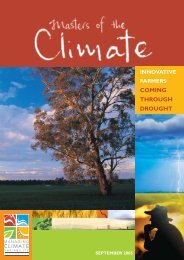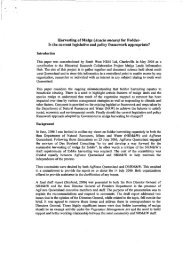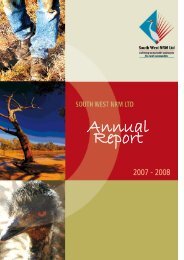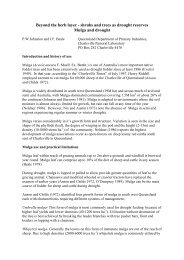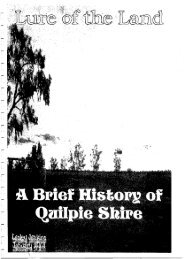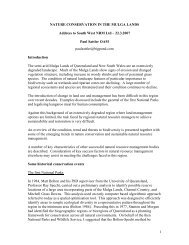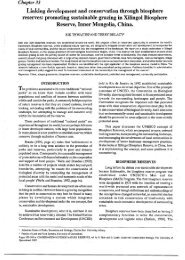soil-conservation-people-religion-and-land.pdf - South West NRM
soil-conservation-people-religion-and-land.pdf - South West NRM
soil-conservation-people-religion-and-land.pdf - South West NRM
Create successful ePaper yourself
Turn your PDF publications into a flip-book with our unique Google optimized e-Paper software.
underst<strong>and</strong>ing of God was kntwn as natural theology. In the<br />
early Church, <strong>and</strong> always in the Greek East, nature was<br />
conceived primarily as a symbolic system through which God<br />
speaks to men: the ant is a sermon to sluggards; rising<br />
flames are the symbol of the soul's aspiration. This view of<br />
nature was essentially artistic rather than scientific.<br />
While Byzantium preserved <strong>and</strong> copied great numbers of ancient<br />
Greek scientific tests, science as we conceive it could<br />
scarcely flourish in such an ambience.<br />
However, in the Latin <strong>West</strong> by the early 13th century natural<br />
theology was follwing a very different bent. It was ceasing<br />
to be the decoding of the physical symbols of God's<br />
communication with man <strong>and</strong> was becoming the effort to<br />
underst<strong>and</strong> God's mind by discovering hw his creation<br />
operates. The rainbw was no longer simply a symbol of hope<br />
first sent to Noah after the Deluge: Robert Grosseteste,<br />
Friar Roger Bacon, <strong>and</strong> Theodoric of Freiberg produced<br />
startlingly sophisticated work on the optics of the rainbow,<br />
but they did it as a venture in religious underst<strong>and</strong>ing.<br />
From the 13th century omard, up to <strong>and</strong> including Leibnitz<br />
<strong>and</strong> Newton, every major scientist, in effect, explained his<br />
motivations in religious terms. Indeed, if Galileo had not<br />
been so expert an amateur theologian he would have got into<br />
far less trouble: the professionals resented his intrusion.<br />
And Newton seems to have regarded himself more as a<br />
theologian than as a scientist. It was not until the late<br />
18th century that the hypothesis of God became unnecessary to<br />
many scientists =.... .<br />
We would seem to be headed towards conclusions unpalatable to<br />
many Christians. Since both science <strong>and</strong> technology are<br />
blessed words in our contemporary vocabulary, some may be<br />
happy at the notions, first, that, viewed historically,<br />
modern science is an extrapolation of natural theology <strong>and</strong>,<br />
second, that modern technology is at least partly to be<br />
explained as an Occidental, voluntarist realization of the<br />
Christian dogma of man's transcendence of, <strong>and</strong> rightful<br />
mastery over, nature. But, as we nw recognize, somewhat<br />
over a century ago science <strong>and</strong> technology - hitherto quite<br />
separate activities - joined to give mankind powers which, to<br />
judge by many of the ecologic effects, are out of control.<br />
If so, Christianity bears a huge burden of guilt.<br />
Lynn White<br />
1967.


